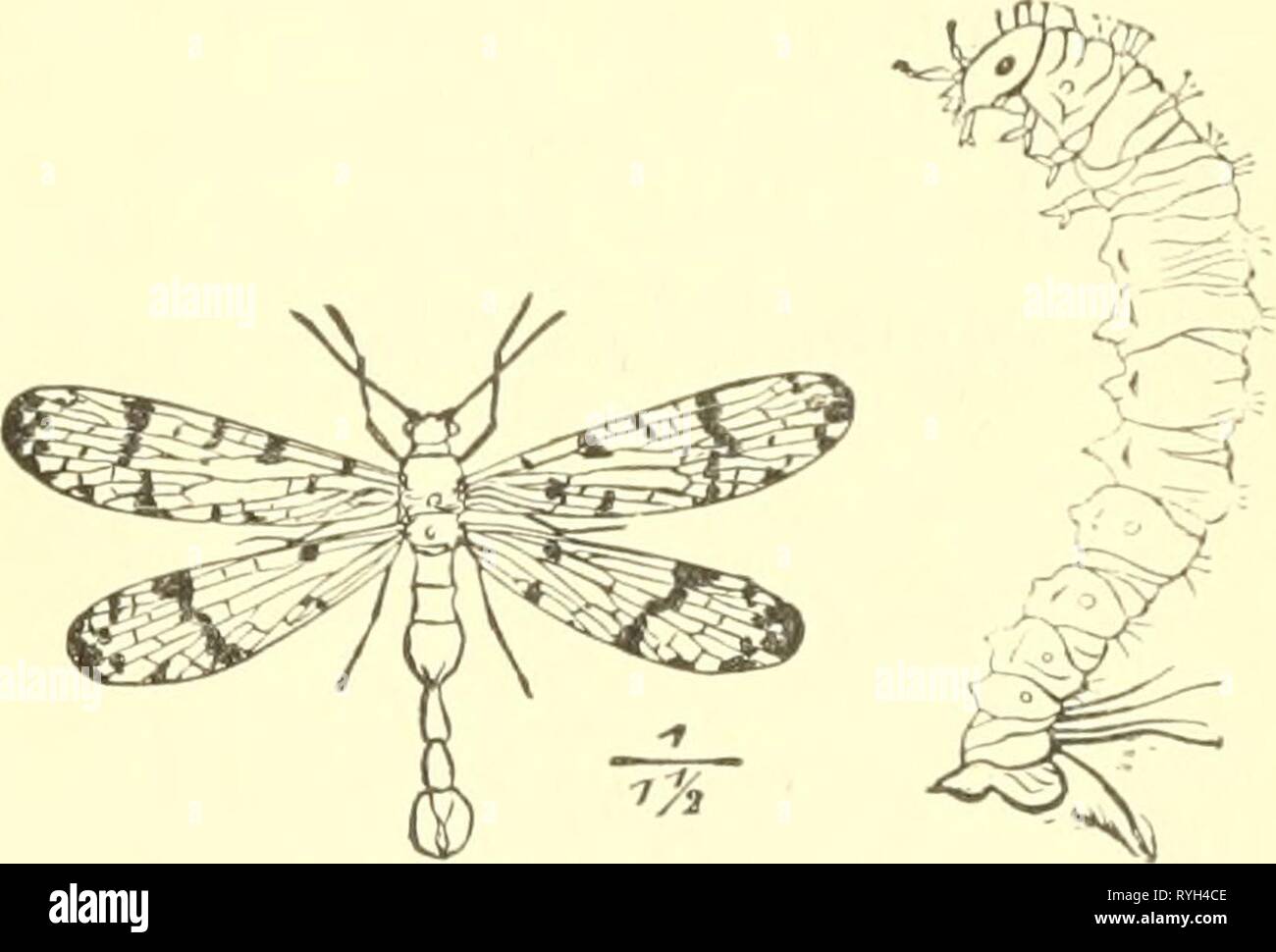Economic entomology for the farmer and the fruit grower, and for use as a text-book in agricultural schools and colleges; economicentomolo00smit Year: 1906 Mantispa species.—Showing the legs and body from the side. A Panorpa, or scorpion-fly, and its larva. what like the sting of a scorpion, and from this the common name is derived. As a matter of fact, the insects are entirely harmless save to others of their kind, for they are predaceous. The genus Bittaciis is narrower winged, with unusually long legs, looking somewhat like a crane-fly at first sight. Species belonging to the genus Bor

Image details
Contributor:
Bookend / Alamy Stock PhotoImage ID:
RYH4CEFile size:
5.7 MB (121.9 KB Compressed download)Releases:
Model - no | Property - noDo I need a release?Dimensions:
1719 x 1164 px | 29.1 x 19.7 cm | 11.5 x 7.8 inches | 150dpiMore information:
This image is a public domain image, which means either that copyright has expired in the image or the copyright holder has waived their copyright. Alamy charges you a fee for access to the high resolution copy of the image.
This image could have imperfections as it’s either historical or reportage.
Economic entomology for the farmer and the fruit grower, and for use as a text-book in agricultural schools and colleges; economicentomolo00smit Year: 1906 Mantispa species.—Showing the legs and body from the side. A Panorpa, or scorpion-fly, and its larva. what like the sting of a scorpion, and from this the common name is derived. As a matter of fact, the insects are entirely harmless save to others of their kind, for they are predaceous. The genus Bittaciis is narrower winged, with unusually long legs, looking somewhat like a crane-fly at first sight. Species belonging to the genus Boreiis occur on the snow in very early spring. The larva;, so far as we know them, are predaceous and resemble caterpillars in appearance ; they have eight pairs of fleshy prolegs, however, while no true caterpillar ever has more than five. None of the species are common and none are of practical importance to the farmer. The ' caddice-flies' have also been elevated to ordinal rank under the name 7;7/'^ra, or ' hairy-winged.' The adults have moderately developed bodies, with large wings, which are more or less densely clothed with hair, the first pair often thicker